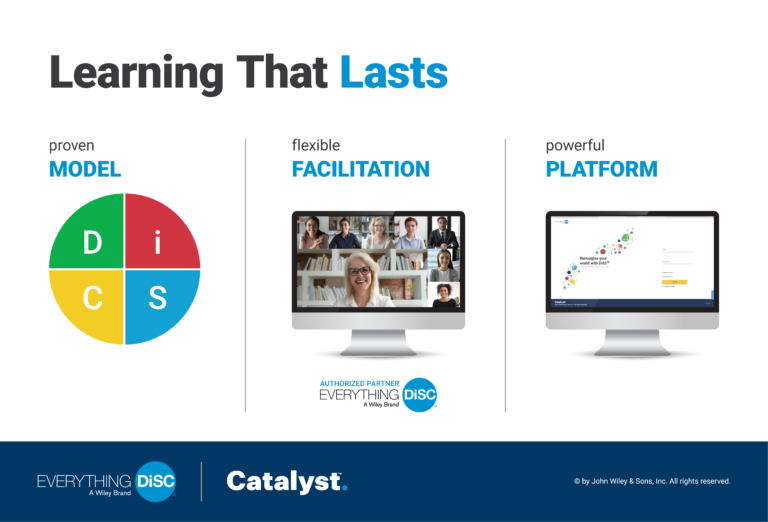In today’s fast-paced modern workplace where many professionals work remote, a key priority for organizations is to create an environment where individuals feel safe, valued, and empowered to share their perspectives.
In a recent study led by Wiley (the publisher of Everything DiSC Assessments and learning), employees were asked about the qualities that they look for in a leader.
The number one response overall was a leader who communicates effectively.
The second leadership trait they looked for was someone who creates a safe place for sharing different perspectives.
Drilling down further, the study showed a wide gap in psychological safety found across employee levels — directors, executives, individual contributors and managers.
Individual contributors and managers, in particular, revealed lower levels of psychological safety. They expressed feeling less secure in speaking up and perceive a diminished sense of value for their contributions. This not only poses a risk to their engagement and well-being but given the impact on collaboration can also have repercussions on the long-term success and results of the organization.
The data highlights a growing need for leaders to cultivate skills in communication and relationship building to improve psychological safety throughout the ranks of an organization – whether someone is a individual contributor, manager, director or at executive level.
Technical and business prowess can always be learned, but honing soft skills is what profoundly can impact an organization’s culture.
How can leaders foster a psychologically safe workplace?
- Prioritize Effective Communication: With the right tools in hand, leaders can articulate their thoughts clearly, listen actively, and encourage open dialogue. By creating an environment where communication flows freely, they set the stage for a workplace where every voice is heard and valued.
- Embrace Diverse Perspectives: Building a safe space for sharing different perspectives involves actively encouraging diversity of thought. Leaders can embrace a culture that values unique viewpoints. This not only fosters a sense of inclusivity but also enriches problem-solving approaches within the organization.
- Lead by Example: Good leaders will walk the talk and go beyond words; it’s about actions. By showcasing vulnerability, humility, and a willingness to learn, leaders create an environment where others feel comfortable doing the same. This authenticity fosters trust and contributes to a psychologically safe workplace.
- Investing in Training and Development: Recognizing the importance of soft skills, leaders will actively invest in training and development programs that enhance communication and relationship-building across all levels of the organization through workshops, coaching sessions, and Everything DiSC assessment been shown to cultivate these soft skills.
As the workplace landscape continues to evolve, so do the expectations placed on leaders.
Fostering a psychologically safe workplace is not only a key part of the strategic agenda for organizational success but a fundamental responsibility of leadership.

To address psychological safety gaps, organizations choose Everything DiSC to cultivate an environment where every member feels empowered to contribute, speak their minds, engage in productive conflict and play an integral role in the overall success of the team.


